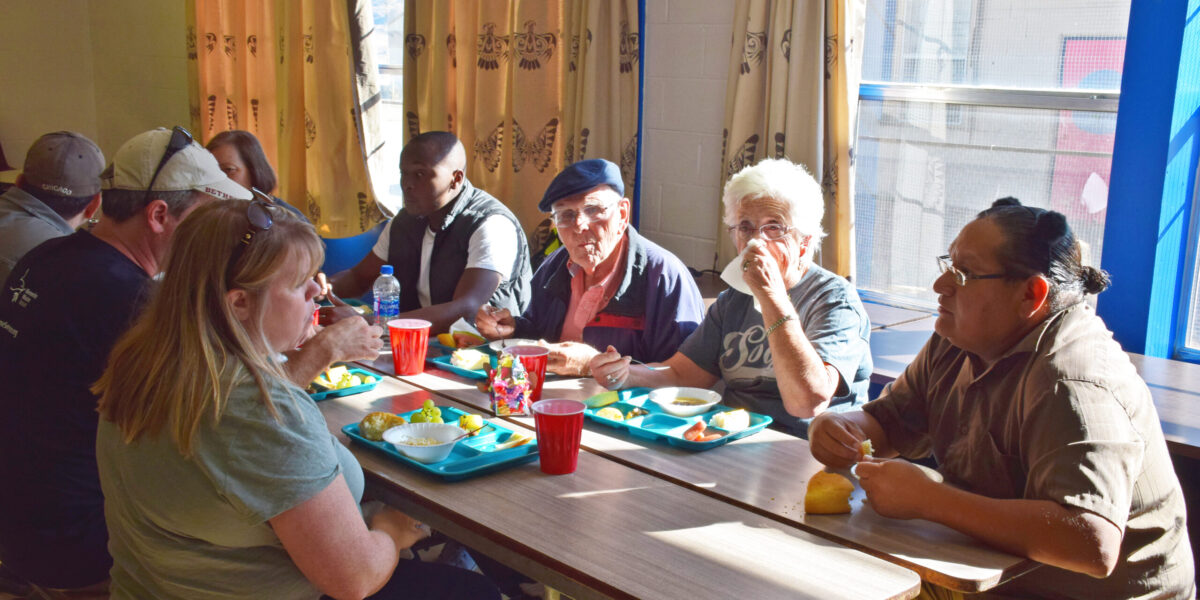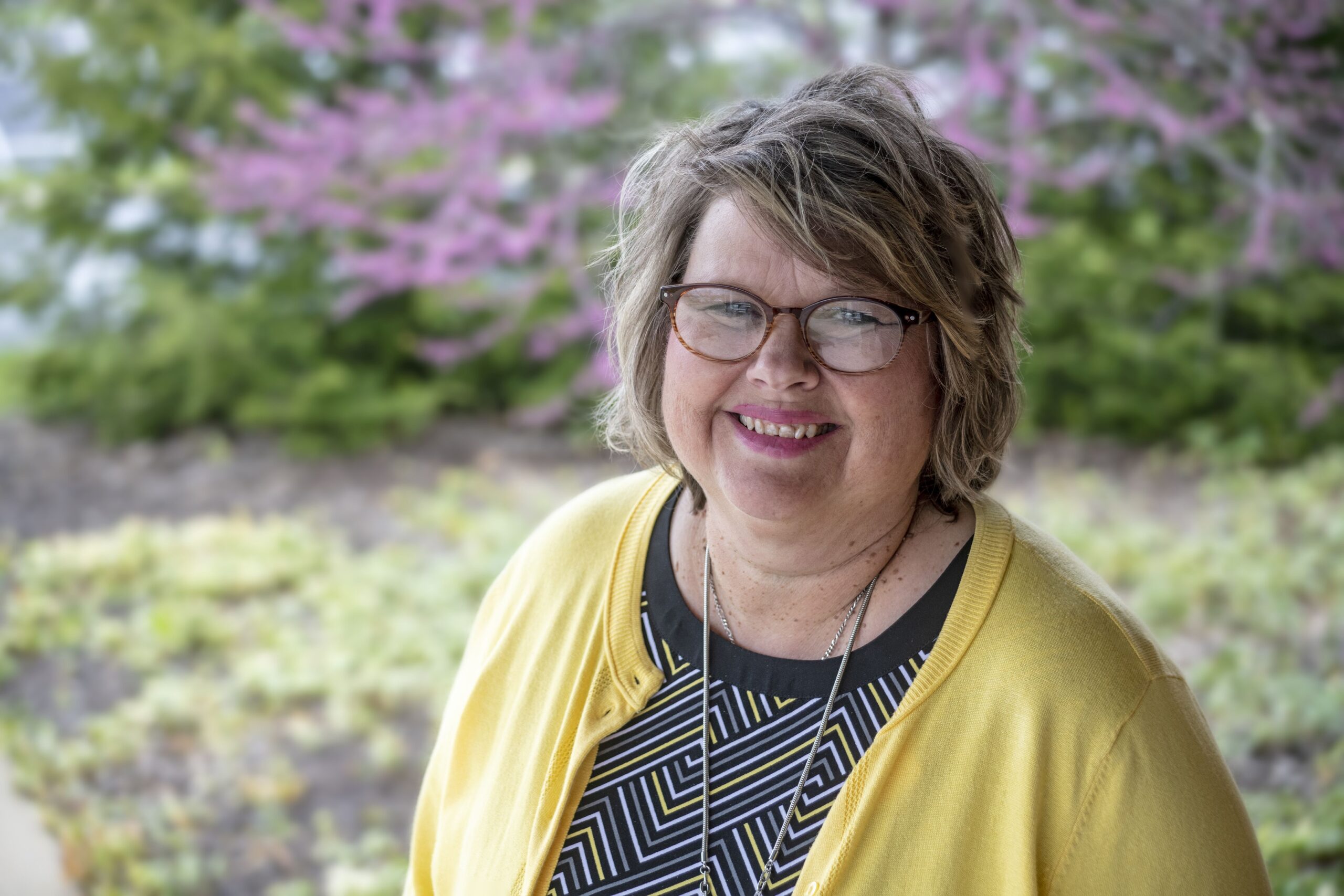NEWTON, Kansas (Mennonite Mission Network) — It had been 40 years since Cheryl Lehmann sat at a teacher’s desk in the former Hopi Mission School in Kykotsmovi, Arizona. During her November visit to the Hopi Reservation with a Mennonite Mission Network-sponsored alumni service-learning tour, Lehmann returned to the room where she had taught kindergarten from 1978 through 1981 as a Mennonite Voluntary Service (MVS) participant.
As she listened to a tour presentation outlining how the former school is now being repurposed as Peace Academic Center, Lehmann’s mind wandered back to her MVS days when she relished leading a classroom buzzing with energetic children, she said during an interview after the tour.
As a young White Mennonite who was born and raised in rural South Dakota, Lehmann said she didn’t expect to be welcomed as openly as she was. Neither did she expect to form bonds with the Hopi people that reached beyond cultural differences to a resonance of the heart.
"I was constantly amazed at how much the Hopi people accepted me," Lehmann said. "It seemed to me that Hopi people respected and trusted the Mennonites, which led to their inviting the Mennonites to build the school. At the school, some of the children became Christian, and others remained within their Hopi religion. But either way, the parents wanted them to be formed by the morals found in the Scriptures."
During the tour, Lance Polingyouma, the center’s cultural liaison and a second grader at the school when Lehmann first came, said shared values — including pacifism, the importance of family, hard work, and strong morals — helped to forge this trust.
Jane Polingyouma, Lance’s mother, also enjoyed the reunion with Lehmann. As one of the school’s former principals, she shared her son’s perspective. "The Mennonites were different from some of the other missionaries who came here; they were more like us."
The Polingyouma family and Kay Neff, center administrator, shared with the tour group how the K-8 school building is being repurposed into a community center. Since summer 2018, the center has not only provided kindergarten and GED classes, but also evening family activities and educational conferences.
A long history led up to the opening of the Hopi Mission School in 1951. The first former General Conference Mennonite Church mission worker, H. R. Voth, came to Hopi Land in 1893. In the years following, the U.S. government began forcing indigenous families to send their children to faraway boarding schools. This often resulted in stripping the children of their tribal identities. To prevent this, the Hopi people asked the Mennonites to help them build a school.
"Parents asked the Mennonites to help them create a day school to keep their children on the reservation," Lance Polingyouma said. "At that time, there was only one other elementary school on the reservation, and we needed another option. The Mennonites had been with us for a long time, and we trusted that the school would be a good fit."
Sadly, the trust that was built on the school’s excellence was eroded when a former principal — neither Mennonite nor Hopi — was convicted of the crime of embezzling school funds. The former school was closed in 2017 and lie dormant until 2018. That’s when Mennonite Church USA, in partnership with the Peace Academic Center Foundation and the Hopi people, began forming the new entity.
Gloria Graber, a tour participant, served as a SOOP (Serving Opportunities with our Partners) volunteer in 2013 as the embezzlement was first coming to light.
"Even though negative things were beginning to happen, in the big picture, my time on the reservation was positive," Graber said. "I felt really appreciated and accepted by the Hopi people."
Many former alumni, including Susan Sekaquaptewa, said they hope that new generations of Hopi families will benefit from Peace Academic Center. Sekaquaptewa, who gave a presentation to the tour group, is an extension agent for the University of Arizona’s Land Grant. She transformed one of the empty classrooms into an extension office in February 2019.
"My being here onsite will help a natural partnership to develop between our tribe and the center," Sekaquaptewa said. Among other things, she is developing a garden on the center grounds and is sponsoring conferences such as dryland farming in an age of climate change, in the center’s gymnasium.
Sekaquaptewa said that when she walked into the building last February, she almost cried from the strong emotions the return evoked.
"The scale of everything and all the classrooms are exactly how I remember them," she said. "But in another way, because of our new partnership, everything is new, too. There are wonderful possibilities waiting for all of us to explore and make reality, together."








